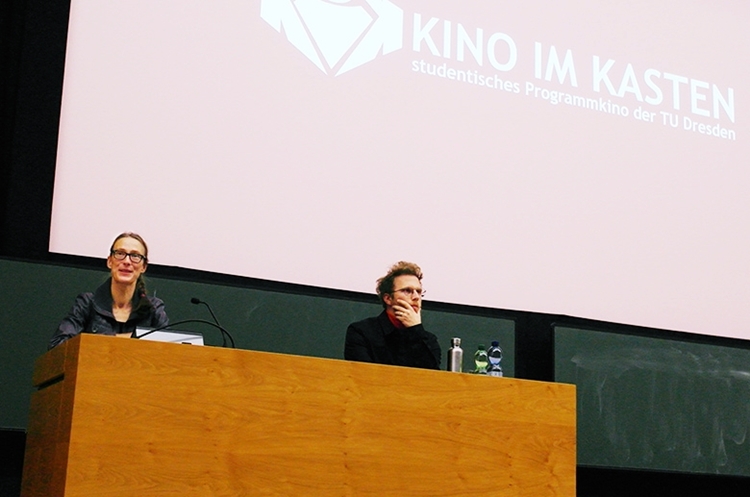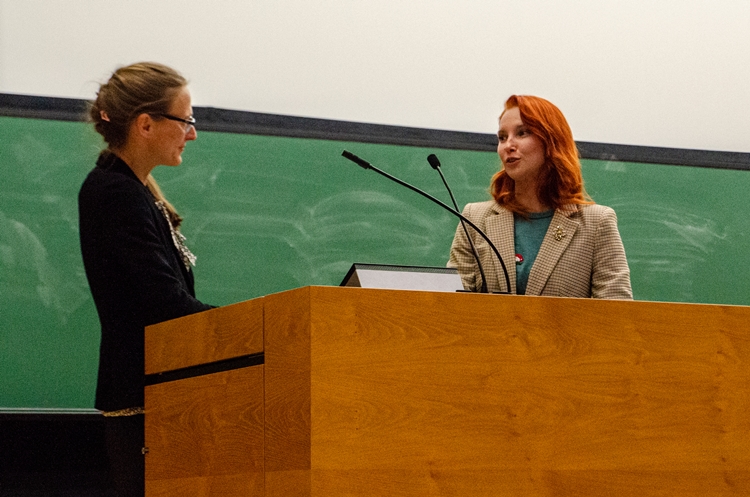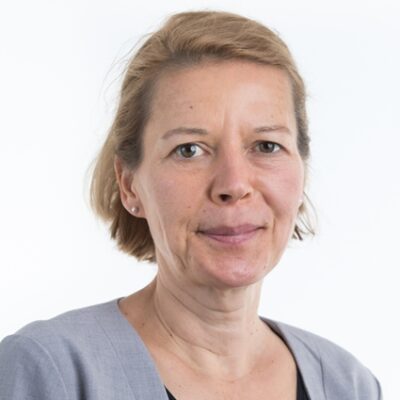Visual Takes – Cyborgs in the Colors of the Spectrum
Does intelligence require consciousness? The metaphor of the cyborg as a hybrid of machine and organism symbolizes the fusion of nature, technology and culture. This raises questions about identity and the dissolution of boundaries. The documentary and film series Visual Takes – Cyborgs in the Colors of the Spectrum addresses the field of tension between artificial intelligence and society on three evenings in winter 2022.
The events take place at the Kino im Kasten, August-Bebel-Straße 20, 01219 Dresden.
Upcoming Screenings of the Visual Takes – Cyborgs in the Colors of the Spectrum series
November 5, 2025, 8 p.m. “Story Telling for Earthly Survival” by Donna Haraway
The scholar and feminist thinker Donna Haraway is perhaps best known as the author of two groundbreaking works: the essay “A Cyborg Manifesto” and the book “Primate Visions”. In both works, Haraway turns established “universal” categories – such as gender essentialism – upside down. She dissolves the boundaries between humans, animals, and machines, and questions humanity’s fascination with primates from a postcolonial perspective.
Story Telling for Earthly Survival is a cinematic portrait that presents Donna Haraway as a vibrant and charismatic thinker whose complex ideas about the environmental crisis and human–nature relations are deeply inspiring. Haraway advocates a holistic worldview and emphasizes the necessity of “making kin” – that is, creating responsible and interconnected relationships among humans and the more-than-human world. She critiques the term “Anthropocene” as too imprecise and instead introduces the concept of the “Plantationocene” to highlight the historical, political, and economic roots of the ecological crisis. The film conveys Haraway’s call to resist both pessimism and blind technological optimism, urging us instead to stay with the “trouble” of our times – actively and compassionately. In doing so, the film renders her complex theories tangible and accessible, inviting viewers to reflect on new forms of coexistence.
We are delighted to welcome Felix Grewe to this event. In his talk and the subsequent discussion, he will explore the fascinating, poetic, and powerful constructions and concepts of Donna Haraway. His contribution will go beyond a purely thematic analysis, opening a critical space for reflection in which the ethical, political, and epistemological dimensions of technology and the future can be discussed within their social context.
Grewe is a research associate at the University of Paderborn and is pursuing a PhD on Donna Haraway’s theory, with a particular focus on redefining the boundaries between gender, body, and technology. His research lies at the intersection of media studies, feminist theory, and technology studies.
Will be screened in English with German subtitles.
Previous Screenings
12.10.22, 8 p.m. “The Social Dilemma” – Documentary film, introduction by André Wendler
The first evening takes a look at America, where social media platform operators are essentially driving the development and funding of AI. A feature-length documentary focuses on the potential risks of social media, especially on our mental health. In the supporting program, we are joined by media culture scholar André Wendler for a discussion.

23.11.22, 8 p.m. “Coded Bias” – Documentary film, introduction by Josephine D’Ippolito
The second documentary addresses the desire for inclusive facial recognition software through the fresh lens of a digital activist. Numerous examples are used to show how AI algorithms multiply racial and gender biases. One area of application is video surveillance, which is ubiquitous in China and is also used in Germany, for example, at train stations, airports or border controls. The speaker of the evening is Josephine D’Ippolito, who is concerned with the reflection of gender and AI in the medium of film.

07.12.22, 8 p.m. “Her” – Feature film
The protagonist of the science fiction film drama shown in December professionally writes empathetic letters for people who have difficulty revealing their own feelings to their counterparts. What does a person need to develop feelings? After the breakup of his long-term relationship, he falls in love with the voice of his newly installed operating system, which is based on artificial intelligence. To what extent is such love possible?
Pillars & Umbrellas
Pillars and Umbrellas is a project of ScaDS.AI Dresden/Leipzig in cooperation with the Office of the Equal Opportunities Officer at TU Dresden.



